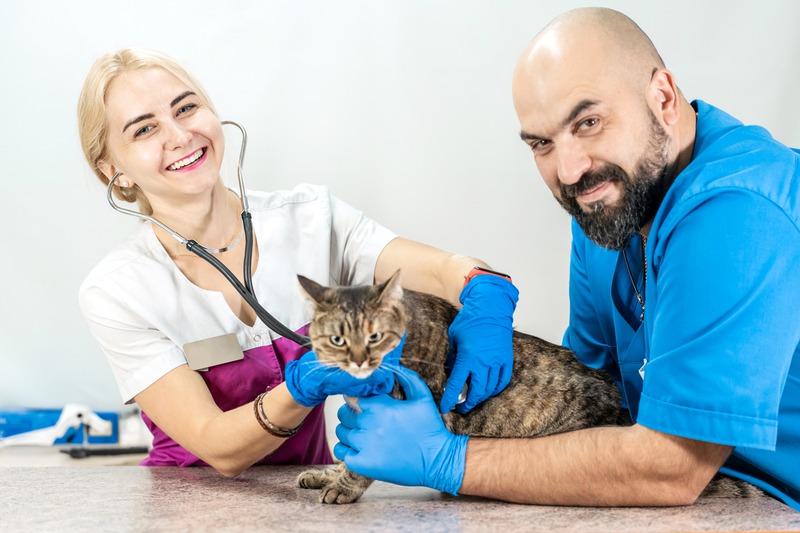As a doting pet parent, our exotic animals often become treasured members of the family. Just like their human counterparts, these unique pets can encounter health issues that require specialized care. Unveiling when to seek the expertise of an internal medicine specialist can mean the difference between a manageable condition and a health crisis for your scaly, feathered, or furry friend.
In this article, we’ll discuss the signs that indicate it’s time for your exotic animal to receive the attention of a specialist and how the right care can keep your companion living their best life.
When to Consult an Internal Medicine Specialist
Determining the right moment to visit an internal medicine specialist is crucial for the well-being of your exotic pet. It’s important to keep in mind that these animals often hide their symptoms as a natural defense mechanism, which can make it challenging to recognize that there’s a problem. Here are the instances when our care and vigilance come into play, necessitating a visit to a veterinary clinic that offers specialized internal care:
Sudden Changes in Behavior or Appetite
Is your normally voracious iguana skipping meals, or has your chatty parrot gone silent? Absolute shifts in behavior or eating patterns are often the first indicator that something is amiss. Internal issues may be at play, and a specialist can help get to the bottom of it.
Unexplained Weight Loss or Gain
Any significant shift in weight that isn’t linked to diet changes warrants concern. A professional with expertise in the treatment of internal conditions can help identify whether a metabolic disorder, parasite, or another issue is the cause.
Gastrointestinal Issues
If you’ve noticed your pet has persistent diarrhea, vomiting, or constipation, don’t wait it out. These symptoms could signal serious conditions that require immediate attention from someone skilled in exotic pet health.
Respiratory Changes
Difficulty breathing, changes in breathing patterns, or persistent coughing are clear signs that your exotic pet might need a specialized lung and airway evaluation. Such signs can point to infections, allergies, or even heart disease.
Lethargy or Weakness
When your usually active reptile is lethargic, or your bird is too weak to fly, there’s potential for concern. The underlying cause could range from infectious diseases to organ failure, and these symptoms definitely warrant a specialist’s intervention.
Recurring or Chronic Illnesses
If your pet’s health issue keeps coming back despite previous treatments, it might be time for a fresh set of expert eyes on the case. Chronic illnesses can be complex and often require a specialist’s assessment and long-term management plan.
Specialized Diagnostic Procedures
Sometimes, the care required goes beyond a general check-up. If advanced diagnostic procedures such as endoscopies or ultrasounds are recommended, seeking out a veterinary specialist is the next step.
What to Expect from Your Visit to an Exotic Pet Specialist
Visiting an internal medicine specialist involves comprehensive evaluation and more nuanced treatment approaches than your regular vet might offer. Here’s what you can generally expect:
Thorough Physical Examination
A specialist will conduct an in-depth physical examination of your pet, checking for any abnormalities or signs of illness that might be missed during a standard vet visit.
Advanced Diagnostic Testing
Specialists have access to and experience with advanced diagnostic tools such as blood tests, X-rays, and beyond, providing a clearer picture of your pet’s health.
Expert Advice
You’ll receive detailed information about your pet’s condition, what it means for their overall health, and how to manage their care moving forward.
Tailored Treatment Plans
An internal medicine specialist will craft a treatment plan that’s tailored to your exotic pet’s specific needs, which may include diet modifications, medications, or other interventions.
Potential Surgical Services
If surgery is necessary, you’ll be in the hands of veterinary surgical services who have the expertise and experience to perform complex procedures on exotic pets.
Selecting the Right Specialist for Your Exotic Pet
Finding a great internal medicine specialist involves a bit more than a quick Google search. Look for credentials such as board certification in veterinary internal medicine or a practice that is part of a reputable clinic.
Research the Clinic’s Reputation
Seek out clinics known for their expertise with exotic pets. Pine Grove Animal Clinic, for instance, has a reputation for providing quality care and specialized services for exotic pets.
Ask About Their Experience
Don’t hesitate to inquire about the vet’s experience with your type of pet. An expert who’s worked with a variety of exotic animals will likely offer the most comprehensive care.
Consider Their Approach to Treatment
An ideal specialist will take a holistic view of your pet’s health. They should consider all aspects of their care, from their living environment to their unique physiological needs.
Availability for Follow-up
Choose a specialist who is readily available for follow-up visits and can provide ongoing support for chronic conditions.
Final Thoughts
The health of our exotic pets is as dear to us as our own. Recognizing the signs that signal the need for a specialist visit is a fundamental part of providing them with the best life possible. No matter if it’s a disconcerting behavioral change or a serious surgical need, being proactive about their health can truly make all the difference. Trust in a capable specialist and watch your exotic companion flourish. Stay attentive to the signs and always keep the well-being of your pet at the forefront of your actions. When faced with uncertainty, remember the expertise of an internal medicine specialist is just an appointment away.


